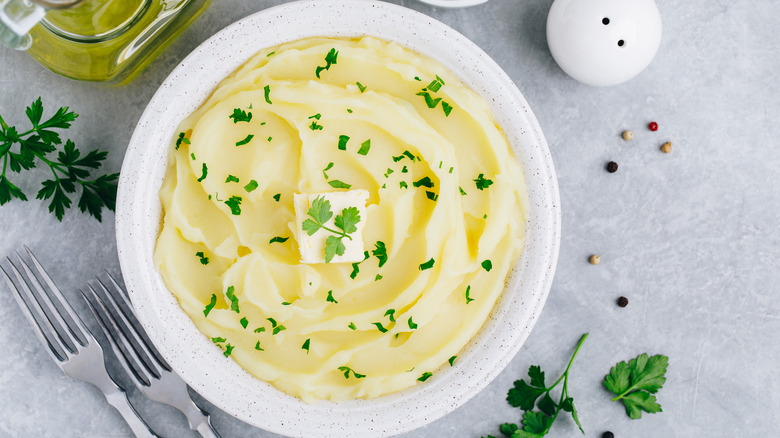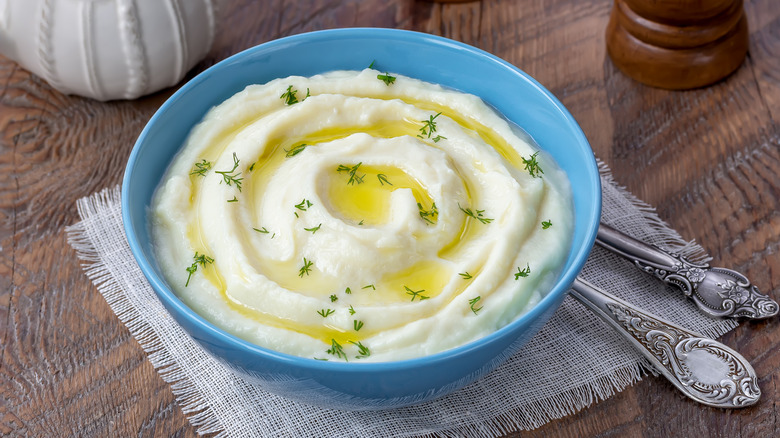The Absolute Best Way To Save Dry Mashed Potatoes
Of all the potato recipes out there, it's hard to think of one more iconic than mashed potatoes. Typically a simple yet delicious combination of boiled potatoes mashed with butter and milk or cream — plus optional flavorings such as roasted garlic or mascarpone cheese — mashed potatoes are a classic side dish that is a must at the Thanksgiving table or piled next to everyday comfort food such as meatloaf or pork chops. And while mashers are fairly simple to make, they do have their pitfalls: under-seasoning them can leave them bland, for example, and overcooking the potato cubes can lead to soggy mashed potatoes (via Eating Well).
Another, perhaps less common, mashed potato problem is the odd batch that turns out way too dry. If this fate has befallen you in the past, read on to learn how to fix it the next time your mashers are less than cravable.
Dry mashed potatoes don't contain enough fat
As delicious as mashed potatoes are, this dish is not exactly dietetic. According to WebMD, mashed potatoes are a high glycemic index food whose starchy carbohydrates are the type that can spike your blood sugar, and the dish is typically prepared with fatty additions such as plenty of butter as well as full-fat milk or cream (via LIVESTRONG).
But as with all foods, there's a time and a place for everything, especially when they're consumed mindfully and in moderation. And, according to Food Republic, mashed potatoes do not take well to "light" preparations. If you skimp on the butter and cream, the side dish will suffer as a result, turning out unappealingly dry. If this occurs, the outlet recommends correcting course with more fat: Adding more liquid in the form of melted butter, extra-virgin olive oil, cream, or full-fat milk. With your mashers restored to the creamy, rich form that they are intended to take, they're ready to provide a luscious base for roasted poultry, grilled meats, or a ladle of flavorful gravy.

